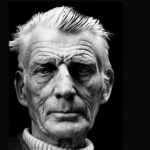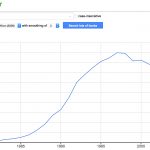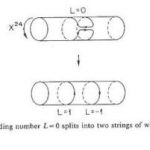end construction
The Social as the Medium: A Review of Johanna Drucker’s The General Theory of Social Relativity
Between the manifesto and the treatise, the text and the paratext, the theoretical and the poetic, the aphoristic and the systematic: Manuel Portela situates the "expressive richness" of Johanna Drucker's "General Theory," and its critique of present social and political formations.
The Historical Status of Postmodernism Under Neoliberalism
Simon During proposes to unravel the “layered” history of postmodernism in New Zealand. In so doing, the author of this essay treats postmodernism as “an event rather than a period” and describes postmodernism’s development in the epoch of neo-liberalism.
Nominalisms Ancient and Modern: Samuel Beckett, the Pre/Post/Modernist?
While describing the work of Beckett as deeply influenced by nominalism, Holly Phillips explores “ineffable permutations of intellectual history” and demonstrates how medieval philosophy has deeply influenced twentieth century literature. Simultaneously, Phillips undermines the idea that nominalism’s dismantlement of universals has finally been accomplished by postmodernism.
The Uses of Postmodernism
Jacob Edmond argues that while postmodernism might be useless as a theoretical concept or periodization, it nevertheless illuminates changes, both local and global, in the final decades of the twentieth century. Edmond analyzes the uses of postmodernism in the United States, New Zealand, Russia, and China. He shows how the various and even contradictory uses of the term postmodernism allowed it to represent both sides in the unfolding tension between globalization and localism in late twentieth-century culture.
What [in the World] was Postmodernism? An Introduction
An Introduction to the gathering.
What is Metamodernism and Why Bother? Meditations on Metamodernism as a Period Term and as a Mode
Alexandra Dumitrescu’s essay describes the development of metamodernism in New Zealand and presents metamodernism as an interrogation of “modernist uprootedness or postmodern drifting.”
Global Warming, Globalization, and Environmental Literary History
Lance Newman suggests Ecocriticism shares a problematic assumption with "green" capitalism: the idea "a livable future will result from billions of individual ethical decisions." Here he traces a burgeoning critical alternative that investigates the historical connections between global capital and the shifting structures of the "ecosocial."
Hybrids at hand: the problem of representing the heterotic superstring
Contrasting conventional notions of representational realism with the leaps of imagination underlying contemporary physics, Sean Miller explores the necessary role of an imaginary in sting theorists' search for a coherent "theory of everything."
Thinking Past Ourselves: Ecology and the Ethics of Cross-Species Partnerships
John Bruni evaluates current proposals for animal rights and green capitalism, questioning whether the legal and economic discourse with which the question of animal life as thus far been bound up will ever allow us, as Cary Wolfe proposes, to think past ourselves.
Introduction to Annotated Bibliographies
This new thread, edited by Henry Turner and introduced by Joseph Tabbi, presents in short order what scholars today in the field of literature, science, and the arts are reading and viewing. Some of the citations appear online, and by 'enfolding' these references, ebr intends to build a profile of the field as it evolves, available to ebr readers for further annotation and construction.









